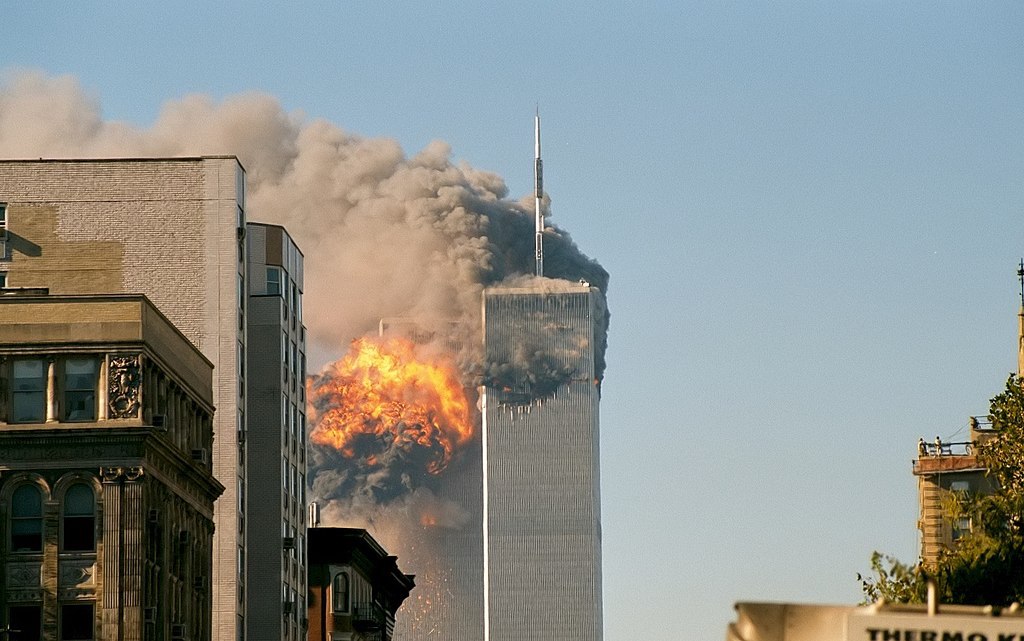
- Details
- By Native News Online Staff
In remembrance of the 20th anniversary of 9/11, Native News Online reached out to several prominent Native Americans earlier this week to have them reflect on where they were and what they were doing when they heard the news that the United States was under attack. Here are their responses.
Want more Native News? Get the free daily newsletter today.
Former Sen. Ben Nighthorse Campbell (Cheyenne), Colorado (1993-2005)
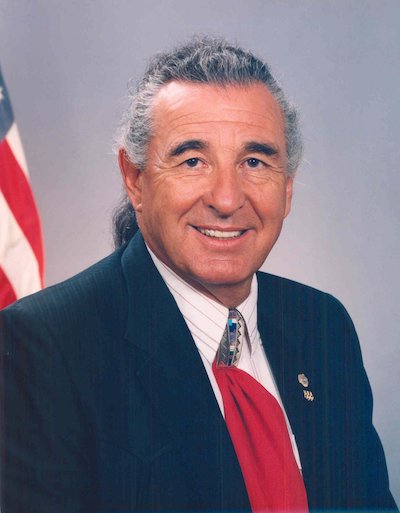 Former Sen. Ben Nighthorse Campbell (Photo/Wikipedia)I was in my office in the Russell Senate Building answering mail with my wife Linda when the first plane hit the World Trade Center. I thought it was an accident like the plane that hit the Empire State Building in the 1940s. Then I saw a second plane hit the other tower, I knew something was wrong. About that time, a Capitol Police officer rushed into my office to tell us we had to leave. He told us a plane was circling the Capitol Building. After we got outside, we saw a cloud of smoke in the distance. It was from the plane that flew into the Pentagon.
Former Sen. Ben Nighthorse Campbell (Photo/Wikipedia)I was in my office in the Russell Senate Building answering mail with my wife Linda when the first plane hit the World Trade Center. I thought it was an accident like the plane that hit the Empire State Building in the 1940s. Then I saw a second plane hit the other tower, I knew something was wrong. About that time, a Capitol Police officer rushed into my office to tell us we had to leave. He told us a plane was circling the Capitol Building. After we got outside, we saw a cloud of smoke in the distance. It was from the plane that flew into the Pentagon.
We went to a gas station near the Capitol and watched a small television that was in its lobby to find out what we could about what was happening. As a matter of course, everything was automatically canceled.
Within hours the Capitol building was surrounded by Marines with machine guns. All roads were closed down for at least three blocks in all directions of the Capitol.
The Capitol remained on lockdown for two weeks.
I was chairman of the Senate committee that appropriates money to the Capitol grounds, so I was able to see various designs put forth to better protect the Capitol. One included a large wall, but we rejected it right away because we could not give up the image of freedom. We did however increase underground tunnels to increase safety. These tunnels allow for access to the Library of Congress and the Supreme Court. They did not exist before 9/11. And now delivery trucks, such as for food and furniture, had to come through a tunnel. Before 9/11, deliveries were made above ground.
9/11 proved to most Americans, we are not safe. Even with all technology, we are still not safe. It used to be that wars were fought over wealth and territory such as land. Now they are fought over religious ideology and it is hard to change people’s religious beliefs.
Rep. Tom Cole (Chickasaw), Oklahoma
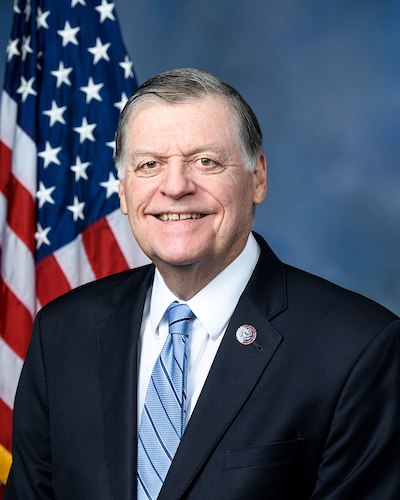 Rep. Tom Cole (R-OK) (Photo/Wikipedia)This was certainly the worst day of my adult life, as I watched these events unfold from the U.S. Chamber of Commerce building across the street from the White House. From this building, I watched in horror as White House staff and personnel, several of whom I knew, ran for their lives after we received news that a fourth plane was flying toward Washington, D.C.
Rep. Tom Cole (R-OK) (Photo/Wikipedia)This was certainly the worst day of my adult life, as I watched these events unfold from the U.S. Chamber of Commerce building across the street from the White House. From this building, I watched in horror as White House staff and personnel, several of whom I knew, ran for their lives after we received news that a fourth plane was flying toward Washington, D.C.
Certainly, if it were not for the bravery and heroism of the Flight 93 passengers, who selflessly took on these terrorists to divert another attack, countless more lives would have been lost.
We will never forget this day or the assailants that brought this tragedy to our nation. From Afghanistan, Al Qaeda plotted and initiated the September 11 attacks, where today we watch this country fall back into the hands of an organization that hosted and sheltered Osama bin Laden.
For the past 20 years, we have made sure Afghanistan never became another launching pad for another terrorist attack. Unfortunately, this anniversary will be marked by a weaponized Taliban and re-emerging ISIS.
Rep. Sharice Davids (Ho-Chunk), Kansas
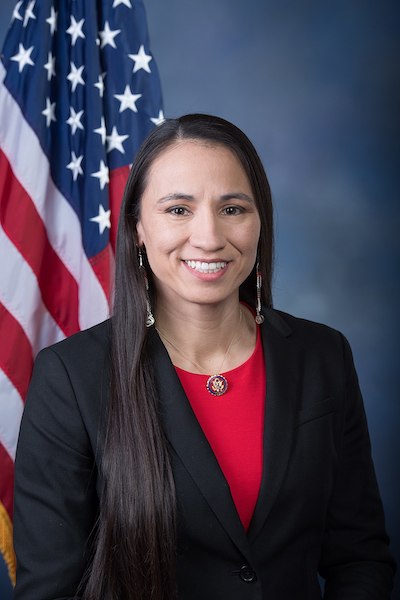 Rep. Sharice Davids (D-KS) (Photo/Wikipedia)Twenty years ago, I was on a road trip with my mom.
Rep. Sharice Davids (D-KS) (Photo/Wikipedia)Twenty years ago, I was on a road trip with my mom.
We were checking out of our hotel in Denver when the first plane struck the World Trade Center. We shared a moment of disbelief—there are so many protocols, how does an accident like this happen?—before the second plane hit and reality collided along with it.
It wasn’t an accident.
Now, as a member of Congress, I have a sworn duty to protect our Constitution against all enemies. Last session, I joined my colleagues in a moment of silence on the Capitol steps to remember the thousands of innocent lives lost and honor the brave first responders who put their lives on the line to help others.
These moments remind me of my place in history, and how much bigger my service in office is than just myself. I strive to remember that each day that I have the honor to serve the people of our community.
Billy Mills (Lakota), 1964 Olympic Gold Medal Winner
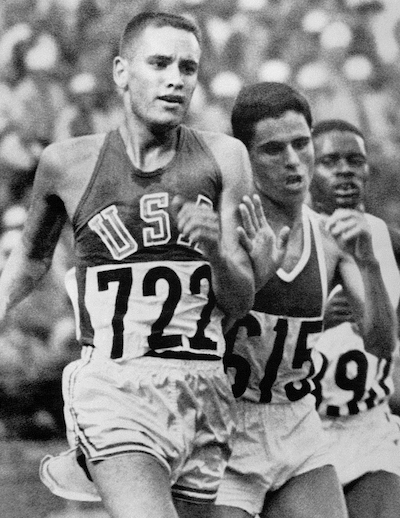 Billy Mills (Photo/Wikipedia)The night before I flew from Buffalo, New York to San Francisco.
Billy Mills (Photo/Wikipedia)The night before I flew from Buffalo, New York to San Francisco.
The morning of 9/11, I had hopped into a car to drive to Monterey to visit my daughter, her husband and my grandson. Approaching their home, I turned on the radio to discover this tragedy as it unfolded.
My daughter and son in law are both fish and game wardens for the state of California and were both preparing to deploy to San Francisco airport and/or Los Angeles airport to serve as security there.
After checking in with them, I hurried back to Sacramento to check on the rest of the family.
Suzan Shown Harjo (Cheyenne/Hodulgee Muscogee), 2014 Presidential Medal of Freedom Recipient
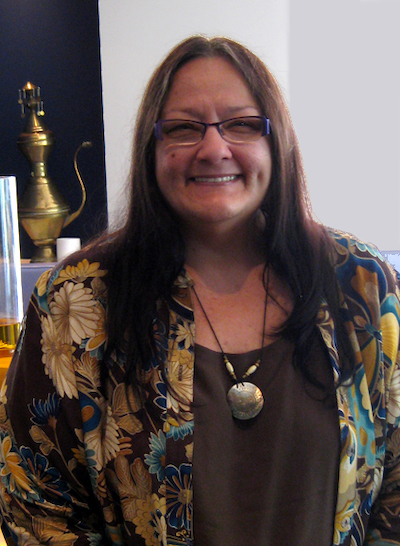 Suzan Shown Harjo (Photo/Wikipedia)I was in my Capitol Hill home office, after writing all night, and organizing, cleaning and preparing for what I knew would be a long, sleepless day, with a couple of meetings and deadlines I had to make. In the background was the often infuriating ‘Imus in the Morning’—I was wondering why MSNBC (which he always called “Must Suck NBC”) kept him on in that important time slot when many are getting ready for and driving to work. Then, in a flash, he was off the air and NBC had taken over. Did they finally fire Don Imus (and why so rudely)? Big news!
Suzan Shown Harjo (Photo/Wikipedia)I was in my Capitol Hill home office, after writing all night, and organizing, cleaning and preparing for what I knew would be a long, sleepless day, with a couple of meetings and deadlines I had to make. In the background was the often infuriating ‘Imus in the Morning’—I was wondering why MSNBC (which he always called “Must Suck NBC”) kept him on in that important time slot when many are getting ready for and driving to work. Then, in a flash, he was off the air and NBC had taken over. Did they finally fire Don Imus (and why so rudely)? Big news!
Then came the really huge, ugly, big-wow news from anchors Katie Couric and Matt Laurer, who were interviewing a witness in Battery Park, north of the Twin Towers, as the network cameras were trained on dark gray smoke gushing from the gaping hole near the top of the North Tower. Amid much speculation — “A small commuter plane accidentally flew into the building?” “How did a bomb get so high in the building?” — the second very large plane hit the South Tower, broadcast in real time, and President George Bush talked, the Towers leaned; Andrea Mitchell quoted sources that this was definitely a terrorist attack and Osama Bin Laden was the only terrorist with the means to carry out this kind of coordinated attack ... and then more on-air speculation: What had happened to cause the Pentagon to shake? Was it a plane or a bomb? Was the State Department car-bombed? here may be a fourth plane; will the Towers be so damaged they'll have to be taken down?
From my second and third floor windows, I could see white and gray smoke billowing in the distance from the Virginia side of the Potomac River, as well as uniformed people with automatic weapons on the sidewalks below. I went outside to find out who they were and what they knew or could say. They were from an assortment of federally-contracted private security forces, who were “securing the area.” I asked them if they knew anything about the explosions in DC, but no one said they knew anything about them. Everyone would learn later that those “explosions" that prompted rumors of attacks on the Hill, White House, State and other buildings were fighter planes breaking the sound barrier—nothing DC residents had heard until then, as no aircrafts were allowed over the District. For many days, all flights were grounded throughout the United States, except for some privileged few leaving the country. I heard from friends stuck in town at a meeting site, trying to borrow a car to drive home, more than halfway across the country.
All day and evening, I was on the phone, trying to block out sirens and sounds of panic and to reach my son, Duke Ray Harjo II, in the Park Slope apartment chosen for its view of the Towers across the East River. He knew his partner, Sarah Stevenson, had to be in the subway beneath the Towers when they were struck, as she was (and she got off uptown at the Empire State Building and walked back to Brooklyn). The phone service in New York was spotty, as it was in DC, and calls between the two cities were nearly impossible., although calls to and from the West got through easily. I couldn’t reach Duke, he couldn’t reach me or Sarah and we (and her parents) would not know until the afternoon that she was safe. I answered every call and talked to all friends and relatives, including some from the Capitol, Defense, Interior and Smithsonian before and after all the federal buildings were evacuated and crowds of federal employees were on foot, making their way home.
Dear friends Vine and Barbara Deloria called from Colorado and, before I realized it, I was interviewing them. I kept working, talking to worried people in upstate New York, Oklahoma, the Dakotas, California and the Northwest, soothing people’s fears that the most prominent features in their towns likely would not be attacked. I talked to Native ironworkers who had built the Towers and to young high-steel workers who were called off their New York jobs and sent to help on the Pile at Ground Zero, because they could keep their balance, avoid being wounded by sharp edges and identify twisted metal so that everyone else would know what part of the buildings they were looking at or standing on.
For the next few days, I spent time interviewing, comparing notes, catching up, listening to and reading firsthand accounts of the calamities, hearing about narrow misses, brewing different kinds of teas, making soups, catnapping and trying not to cry. When I sent in my column to Indian Country Today on September 14, I just tried to absorb what anyone and everyone was saying about how 9/11 affected them. When I read the column in print, I was surprised to see it started with one of the best openers I’d ever written:
It was the week of 9/11, the day it rained fingers and teeth. A time when millions breathed ashes of the thousands.
Christopher T. Stearns (Navajo) – Attorney, Hobbs, Straus Dean & Walker
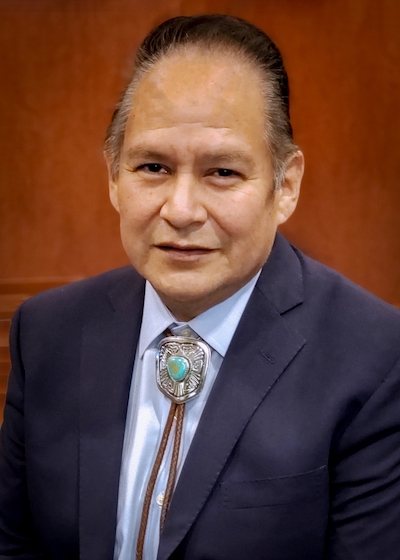 I was in DC at the time. In fact, I was in the bowels of the Grand Hyatt with hundreds of tribal leaders and staff that morning when the planes struck.
I was in DC at the time. In fact, I was in the bowels of the Grand Hyatt with hundreds of tribal leaders and staff that morning when the planes struck.
I had been doing work for clients on the newly formed Tribal Sovereignty Protection Initiative which was meeting that day.
We learned that something horrible had happened when the Senate security detail came and whisked Senator Inouye (D-HI) away from the podium.
Senator Inouye told us that something involving national security had occurred and he had to leave for his safety. The audience in the ballroom was shocked. Many of us rushed up the escalators to the main floor lobby to watch the televisions with the hundreds of people gathered around them. We soon learned that Washington DC was under attack. And we watched in horror as the towers collapsed. Rumors spread throughout the hotel. For instance, we heard that the Washington Monument had been attacked or that the Capitol had been hit or that the 14th Street Bridge was destroyed. People scrambled to leave the hotel but, as we soon found out, everything was shut down. There were no flights out, the trains had stopped, some highways were closed, and all of the rental cars in D.C. had been snapped up in an instant. No one knew what was coming next. The fear and the dread hung over us all.
But, with the chances of leaving D.C. all but gone, the tribal leaders, led by Chairman Ron Allen of Jamestown S’Klallam and President Kelsey Begaye of the Navajo Nation – who also were the heads of the Tribal Sovereignty Protection Initiative – a decision was quickly reached to stay in place. This was done partly because the conference was taking place in the conference rooms of the hotel that were several floors underground and thus particularly safe from attack. And partly because the work would allow the tribal leaders, staff, and other guests to take their focus off the tragedy and mayhem. And it worked.
Looking back on the day, it is amazing how quickly and how wisely our tribal leaders acted to minimize any confusion, despair, or hysteria. There was not just a sense of unity in protecting America, but a deeper sense of unity, caring, and compassion among the broad cross-section of Indian Country that would have to remain in D.C. for the coming days.
More Stories Like This
Native News Weekly (August 25, 2024): D.C. BriefsZuni Youth Enrichment Project Announces Family Engagement Night and Spring Break Youth Programming
Next on Native Bidaské: Leonard Peltier Reflects on His First Year After Prison
Deb Haaland Rolls Out Affordability Agenda in Albuquerque
Boys & Girls Clubs and BIE MOU Signing at National Days of Advocacy
Help us defend tribal sovereignty.
At Native News Online, our mission is rooted in telling the stories that strengthen sovereignty and uplift Indigenous voices — not just at year’s end, but every single day.
Because of your generosity last year, we were able to keep our reporters on the ground in tribal communities, at national gatherings and in the halls of Congress — covering the issues that matter most to Indian Country: sovereignty, culture, education, health and economic opportunity.
That support sustained us through a tough year in 2025. Now, as we look to the year ahead, we need your help right now to ensure warrior journalism remains strong — reporting that defends tribal sovereignty, amplifies Native truth, and holds power accountable.
 The stakes couldn't be higher. Your support keeps Native voices heard, Native stories told and Native sovereignty defended.
The stakes couldn't be higher. Your support keeps Native voices heard, Native stories told and Native sovereignty defended.
Stand with Warrior Journalism today.
Levi Rickert (Potawatomi), Editor & Publisher

